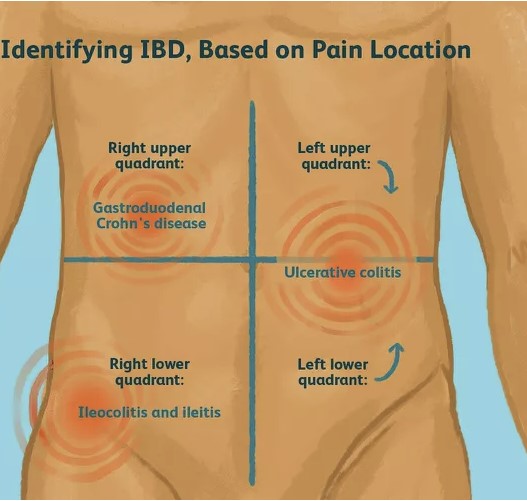Irritable Bowel Syndrome (IBS) and Non-Alcoholic Fatty Liver Disease (NAFLD) are two prevalent health issues affecting numerous individuals globally. IBS, characterized by symptoms like cramping, bloating, abdominal pain, gas, constipation, and diarrhea, primarily impacts the large intestine. In contrast, NAFLD involves the accumulation of liver fat in individuals who consume little to no alcohol, often associated with metabolic conditions such as obesity, diabetes, and insulin resistance.
While traditionally viewed as distinct conditions, recent research has shed light on the interconnected nature of IBS and NAFLD. Through a comprehensive review of 72 references spanning from 2001 to 2022, the aim was to identify commonalities between these disorders.
Key Findings:
- Shared Factors: Both IBS and NAFLD share common factors, including obesity, alterations in gut microbiota, intestinal dysmotility, and dysfunction of the brain-gut axis. Additionally, oxidative stress and increased intestinal permeability play significant roles in NAFLD, binding with insulin resistance.
- Evolution of Research: Over the years, research has evolved from initially treating IBS and NAFLD as distinct conditions to exploring biochemical pathways, such as the association of the gastrointestinal microbiome and the role of the Farnesoid X receptor in hepatic triglycerides and glucose homeostasis.
- Recent Focus: Studies conducted between 2016 and 2022 have highlighted the long-term instability of the intestinal microbiome and its association with metabolic liver disease, low microbiota diversity, diabetes mellitus, and impaired exocrine pancreatic function.
The prevalence of Non-Alcoholic Fatty Liver Disease (NAFLD) is on the rise, closely linked to metabolic conditions like obesity, diabetes, and insulin resistance. NAFLD involves the accumulation of fat in the liver, leading to inflammation and liver damage. Concurrently, Irritable Bowel Syndrome (IBS), a gastrointestinal disorder characterized by altered bowel habits and abdominal discomfort, affects a significant portion of the population.
Recent research has explored the interconnectedness between NAFLD and IBS, uncovering shared pathophysiological mechanisms. One critical aspect is oxidative stress, which occurs due to an imbalance between harmful free radicals and protective antioxidants in the body. This oxidative stress contributes to the development of non-alcoholic steatohepatitis (NASH), a more severe form of NAFLD characterized by liver inflammation and injury.
Cytokines, molecules involved in immune responses, play a significant role in promoting liver inflammation and chronic damage in NAFLD. Moreover, these cytokines can disrupt insulin signaling pathways, leading to insulin resistance and elevated insulin levels. This insulin resistance not only exacerbates liver fat accumulation but also promotes bacterial overgrowth in the small intestine, worsening gastrointestinal symptoms associated with IBS.
Furthermore, the fermentation of undigested carbohydrates in the large intestine exacerbates gut inflammation and dysfunction characteristic of IBS. This process compromises the intestinal mucosal barrier, allowing harmful substances to penetrate the intestinal lining and trigger inflammation.
The bidirectional relationship between obesity and IBS is also noteworthy, with obesity influencing gut motility, microbiota composition, and intestinal barrier function. Insulin resistance, a hallmark of NAFLD, further contributes to liver fat deposition and worsens liver damage over time.
In response to these insights, researchers have emphasized the importance of understanding the complex interplay between metabolic disorders like NAFLD and gastrointestinal conditions like IBS. By identifying shared mechanisms such as oxidative stress, gut dysbiosis, and insulin resistance, clinicians can develop more targeted approaches to managing these conditions effectively.
Furthermore, advancements in medical research have led to the development of innovative interventions like Livby, a medication formulated based on scientific principles and traditional Ayurvedic recipes. Livby shows promise in addressing liver-related problems by targeting underlying mechanisms such as oxidative stress, gut dysbiosis, and insulin resistance. Its unique formulation, supported by clinical evidence and government recognition, offers hope for individuals struggling with NAFLD and related gastrointestinal issues.

